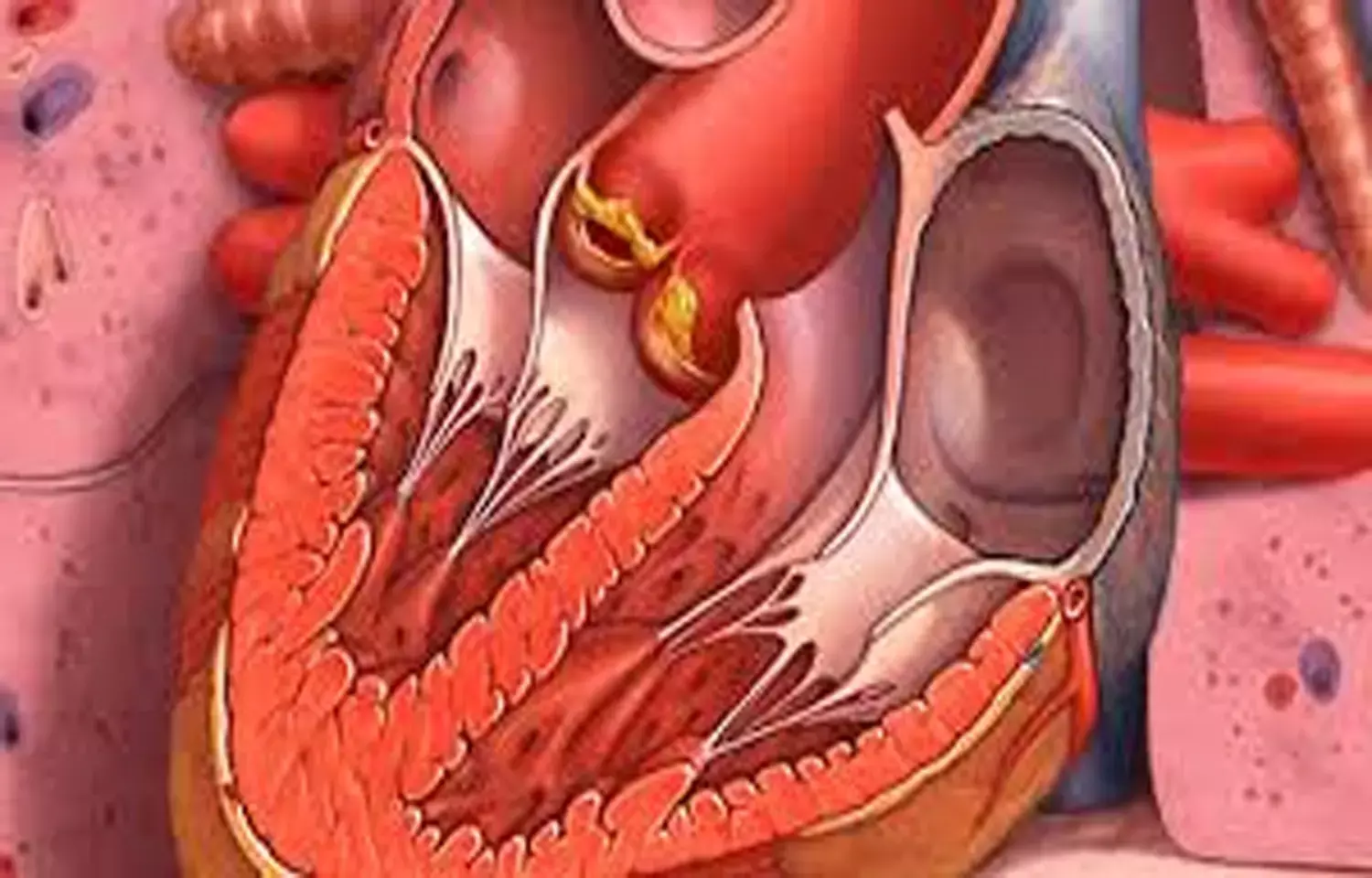- Home
- Medical news & Guidelines
- Anesthesiology
- Cardiology and CTVS
- Critical Care
- Dentistry
- Dermatology
- Diabetes and Endocrinology
- ENT
- Gastroenterology
- Medicine
- Nephrology
- Neurology
- Obstretics-Gynaecology
- Oncology
- Ophthalmology
- Orthopaedics
- Pediatrics-Neonatology
- Psychiatry
- Pulmonology
- Radiology
- Surgery
- Urology
- Laboratory Medicine
- Diet
- Nursing
- Paramedical
- Physiotherapy
- Health news
- Fact Check
- Bone Health Fact Check
- Brain Health Fact Check
- Cancer Related Fact Check
- Child Care Fact Check
- Dental and oral health fact check
- Diabetes and metabolic health fact check
- Diet and Nutrition Fact Check
- Eye and ENT Care Fact Check
- Fitness fact check
- Gut health fact check
- Heart health fact check
- Kidney health fact check
- Medical education fact check
- Men's health fact check
- Respiratory fact check
- Skin and hair care fact check
- Vaccine and Immunization fact check
- Women's health fact check
- AYUSH
- State News
- Andaman and Nicobar Islands
- Andhra Pradesh
- Arunachal Pradesh
- Assam
- Bihar
- Chandigarh
- Chattisgarh
- Dadra and Nagar Haveli
- Daman and Diu
- Delhi
- Goa
- Gujarat
- Haryana
- Himachal Pradesh
- Jammu & Kashmir
- Jharkhand
- Karnataka
- Kerala
- Ladakh
- Lakshadweep
- Madhya Pradesh
- Maharashtra
- Manipur
- Meghalaya
- Mizoram
- Nagaland
- Odisha
- Puducherry
- Punjab
- Rajasthan
- Sikkim
- Tamil Nadu
- Telangana
- Tripura
- Uttar Pradesh
- Uttrakhand
- West Bengal
- Medical Education
- Industry
Echo helps diagnose infective endocarditis from dental flossing: Case Report

USA: A recent case reported in the Cureus Journal of Medical Science, showed that echocardiography helped clinicians in diagnosing a man with a rare case of infective endocarditis (IE). IE is thought to be caused by oral bacterial released from vigorous dental flossing.
A transesophageal echocardiogram of the man revealed vegetation, an infected mass growing on a heart valve that is a hallmark of infective endocarditis. According to the authors, this is the first known case of the disease stemming from robust flossing.
Infective endocarditis is a rare, elusive disease, carrying a 10%-30% mortality. It requires a high index of suspicion and affects damaged native valves and prosthetic valves. There are a number of inherent risk factors that predispose patients to IE, but dental work in the preceding six weeks is often a culprit of disease, colonizing damaged native mitral valves with Streptococcus viridans species. Traditionally, flossing has been suggested to be protective against IE.
Rachel E. Bridwell, Brooke Army Medical Center, Fort Sam Houston, San Antonio, and colleagues present a case of S. gordonii subacute IE on a regurgitant native mitral valve secondary to vigorous flossing.
The case in question is of a 63-year-old man with a medical history of mitral regurgitation went to the emergency room because he had a fever of 103° F for three weeks. Previously, he had been evaluated at another emergency department and by a primary care doctor for the same reason, but the fever persisted without a known cause. He denied having any risk factors, including recent dental work and drug or alcohol use. However, the man endorsed robust flossing that caused his gums to bleed, the authors noted.
His vital signs were normal, an exam did not identify a murmur or skin lesions, and an electrocardiogram and chest x-ray did not show any abnormalities. His lab results revealed a white blood cell count of 10,100 cells/uL, an elevated C-reactive protein level of 14 mg/dL, and an erythrocyte sedimentation rate of 95 mm/h. The man was given 1.5 g of vancomycin and 3.375 g of piperacillin/tazobactam intravenously.
Three separate blood cultures collected 15 minutes apart yielded S. gordonii. A transthoracic echocardiogram (TTE) didn't show anything remarkable, but a transesophageal echocardiogram (TEE) revealed a small vegetation on the posterior leaflet of the mitral valve. His antibiotics were changed to 242 mg of intravenous gentamicin every 24 hours and 24 million units of penicillin G continuous infusion, due to the sensitivities of S. gordonii, the authors wrote.
The man's blood cultures no longer grew S. gordonii on his third day in the hospital. He was discharged home and prescribed two weeks of outpatient gentamicin infusions and four weeks of penicillin infusions.
"Though less commonly affecting native valves, IE represents a challenging but dangerous clinical entity that requires a high index of suspicion. High risk features include IV drug use, recent dental scaling or care, prosthetic valxves, or native valves incurring damage. However, no previous case has been described with flossing-induced IE on a native mitral valve," wrote the authors.
"Emergency clinicians should consider this diagnosis in patients with high risk features as well as recurrent fevers without an identified source," they concluded.
Dr Kamal Kant Kohli-MBBS, DTCD- a chest specialist with more than 30 years of practice and a flair for writing clinical articles, Dr Kamal Kant Kohli joined Medical Dialogues as a Chief Editor of Medical News. Besides writing articles, as an editor, he proofreads and verifies all the medical content published on Medical Dialogues including those coming from journals, studies,medical conferences,guidelines etc. Email: drkohli@medicaldialogues.in. Contact no. 011-43720751


